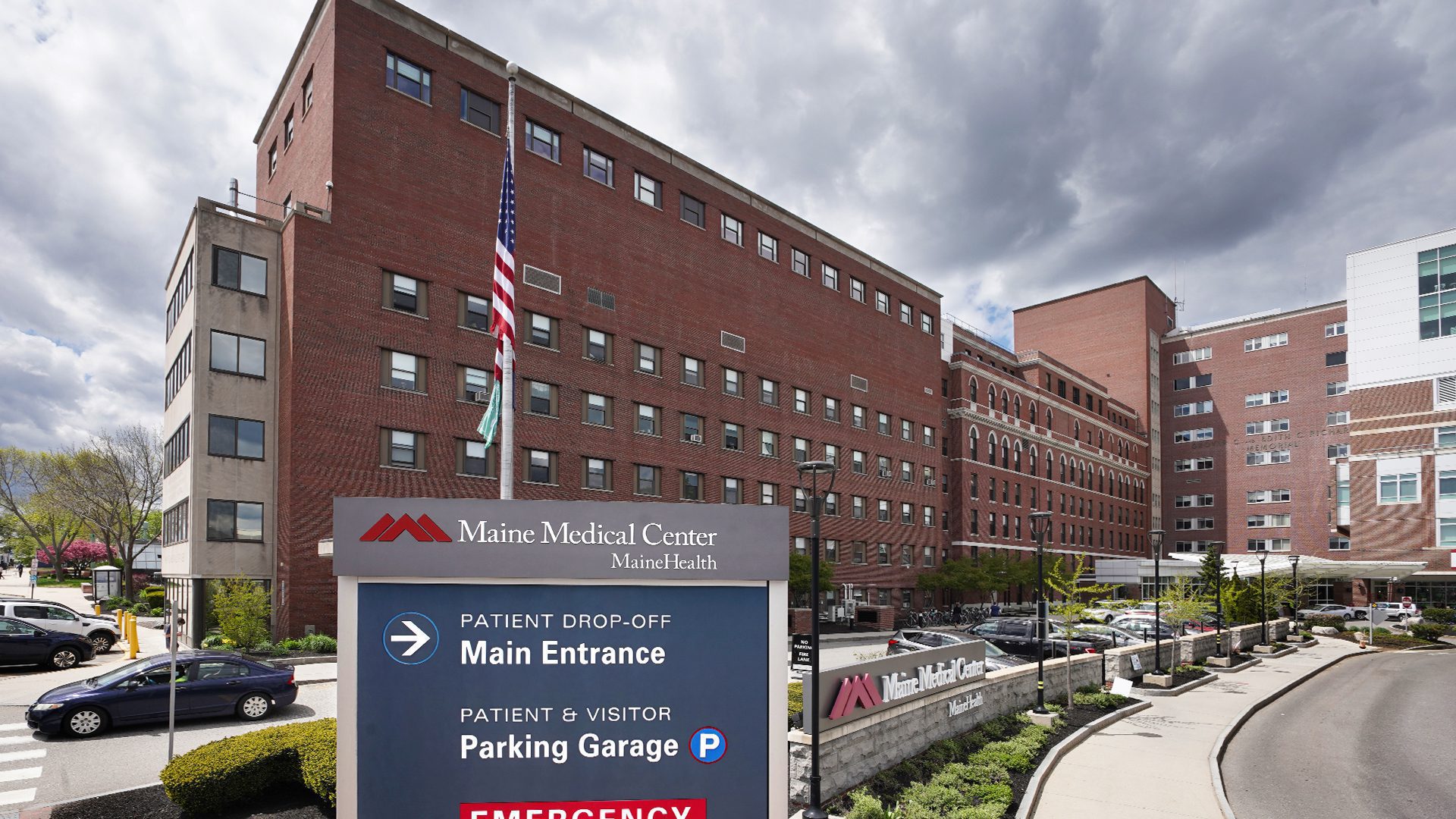Maine health care organizations and advocacy groups predict that gun violence, in the wake of October’s mass shooting in Lewiston, will dominate much of the health-related discussions during the legislative session that began Jan. 3.
The organizations also outlined a number of other health-related priorities, including addressing the opioid crisis, improving resources for older adults, and increasing reimbursement rates. They also offered differing positions on nurse staffing ratios.
The session is set to adjourn April 17, which is a shorter period to introduce new legislation in addition to the bills that were carried over from last year.
“Foremost in the upcoming legislative session will be to advocate for sensible and effective gun safety legislation, and to continue our efforts to reduce the alarming loss of life in Maine because of opioid use disorder,” said Dr. Paul R. Cain, president of the Maine Medical Association, which represents more than 4,000 physicians, residents and medical students.
Maine’s worst mass shooting occurred last fall when a Bowdoin man killed 18 people at a Lewiston bowling alley and at a bar, prompting questions about the state’s sparse gun laws and mental health services.
In response, the Maine nurses union said it supports gun safety legislation, including a ban on the sale of assault-style weapons. MaineHealth, the state’s largest health system, said it would support evidence-based legislation to address gun violence, such as a waiting period.
In addition to gun safety legislation, some groups want to increase access to health care coverage.
Both the Maine Medical Association and Maine Hospital Association said they support LD 796, which would address insurance carriers who refuse to provide reimbursement for medically necessary care, said Steven Michaud, the Maine Hospital Association president.
Michaud said the Maine Hospital Association also supports LD 225, which would require Medicaid to pay for some care when their patients are stuck in hospitals while awaiting placement at an appropriate long-term care or residential care facility.
“These bills are linked,” Michaud said. “If we provide care, we should get paid for it. Far too often, that is not happening.”
The Maine Hospital Association opposes LD 1639, which would establish minimum direct-care registered nurse staffing levels, based on the unit and patient needs.
Michaud said the minimum ratios would cost Maine hospitals nearly $100 million per year. “We continue to vigorously oppose state control of hospital staffing decisions,” he said.
MaineHealth also said it was concerned about the legislation, which was hotly debated last year and carried over into this session.
“This bill would inhibit nurses’ autonomy in making staffing decisions to support the acuity and patient mix on their units at any given time,” said Katie Fullam Harris, chief government affairs officer for MaineHealth.
The Maine State Nurses Association “is strongly supporting” the bill, a version of which has been adopted in California.
“Over 20 years of data since the implementation of California’s nurse-to-patient ratio law shows that patients are safer when nurse-to-patient ratios are in place,” MSNA said in a statement.

MaineHealth supports a number of bills this session, including LD 1797, which would provide financial support for workforce development in rural areas; LD 1407, which it said would protect providers from substantial mid-year contract changes; LD 840, which would develop a bundled rate to support treatment for individuals with emotional dysregulation disorder; and LD 2083, which would address medication management for behavioral health patients.
In addition to gun violence, Fullam Harris said lawmakers seem interested in questions around child protective services, which could also dominate the session.
She added that the “serious gaps” in long-term care and behavioral health have widespread impacts on hospital patients, health system capacities and workforce.
While there aren’t many legislative options left this session to increase funding for those efforts, she said “it is our hope that the Legislature identifies opportunities to review these key service areas and develop long-term solutions to better meet the needs of our state’s population.”
The Maine Health Care Association, which represents about 200 nursing homes and assisted living facilities across the state, said the “chronic underfunding” of nursing homes and residential care facilities has led to about 50 closures and conversions of long-term care facilities since 2012.
“The reimbursement rate for nursing homes and residential care facilities has been woefully inadequate for decades,” said Angela Cole Westhoff, president & CEO of the Maine Health Care Association. Without emergency payments, the nursing home shortfall in 2022 would have been almost $100 million per year, she said.
Westhoff added that her organization will work with Gov. Janet Mills’ administration to overhaul the MaineCare payment model for nursing homes and residential care, which is expected to take place over the next several months.
“However, a new long-term care payment system alone will not be enough,” she said. “The ultimate need for sustaining long-term care is meaningful financial investment to support the cost of providing quality care.”
Jess Maurer, executive director of Maine Council on Aging, a network of organizations focused on issues affecting older adults, said the council is focused on getting funding for two bills that would improve workforce and resources for older Mainers.
The first, LD 1718, is intended to attract and retain workers into the direct care workforce by offering a tuition benefit, Maurer said.
“This is low cost, potentially high-value action, and it addresses the significant and growing care gap in Maine, (which is) defined as those who are entitled to care and support, but who are not getting the care or support because of workforce shortages.”
Secondly, LD 1684 would provide more permanent funding for Areas Agencies on Aging, which help older Mainers with significant challenges connect to resources. Maurer said she’s seeing more older people struggle with homelessness, lack of care and the inability to access services like transportation.
The Maine Chapter of the Alzheimer’s Association also supports LD 1718, as well as LD 2125, which would establish a dementia advisory council and require Maine to regularly update its State Plan on Alzheimer’s, and LD 1577, which would require health insurance coverage of biomarker testing.
“With respect to Alzheimer’s, continued progress around blood-based amyloid biomarkers is likely to lead to new Alzheimer’s diagnostic tools coming to market within the next couple of years,” said Jill Carney, the chapter’s director of public policy. “This would have significant implications for rural Mainers who live further away from specialists like neurologists.”
The Maine Public Health Association said its priorities this session are gun violence prevention and safety, ending the sale of flavored tobacco products, recognizing Wabanaki self-determination, evidence-based medical and adult use cannabis oversight, and protecting public health funding from the tobacco settlement for efforts related to mental health and environmental health.
“Many of the issues likely to dominate this session are intersectional and relate to other public health challenges, including climate change, drinking water and air quality, and economic stability, among others,” said Rebecca Boulos, the executive director of Maine Public Health Association.
“Taking a preventive and proactive approach to policy-making will help all people in Maine lead healthful, fulfilling and economically secure lives.”







